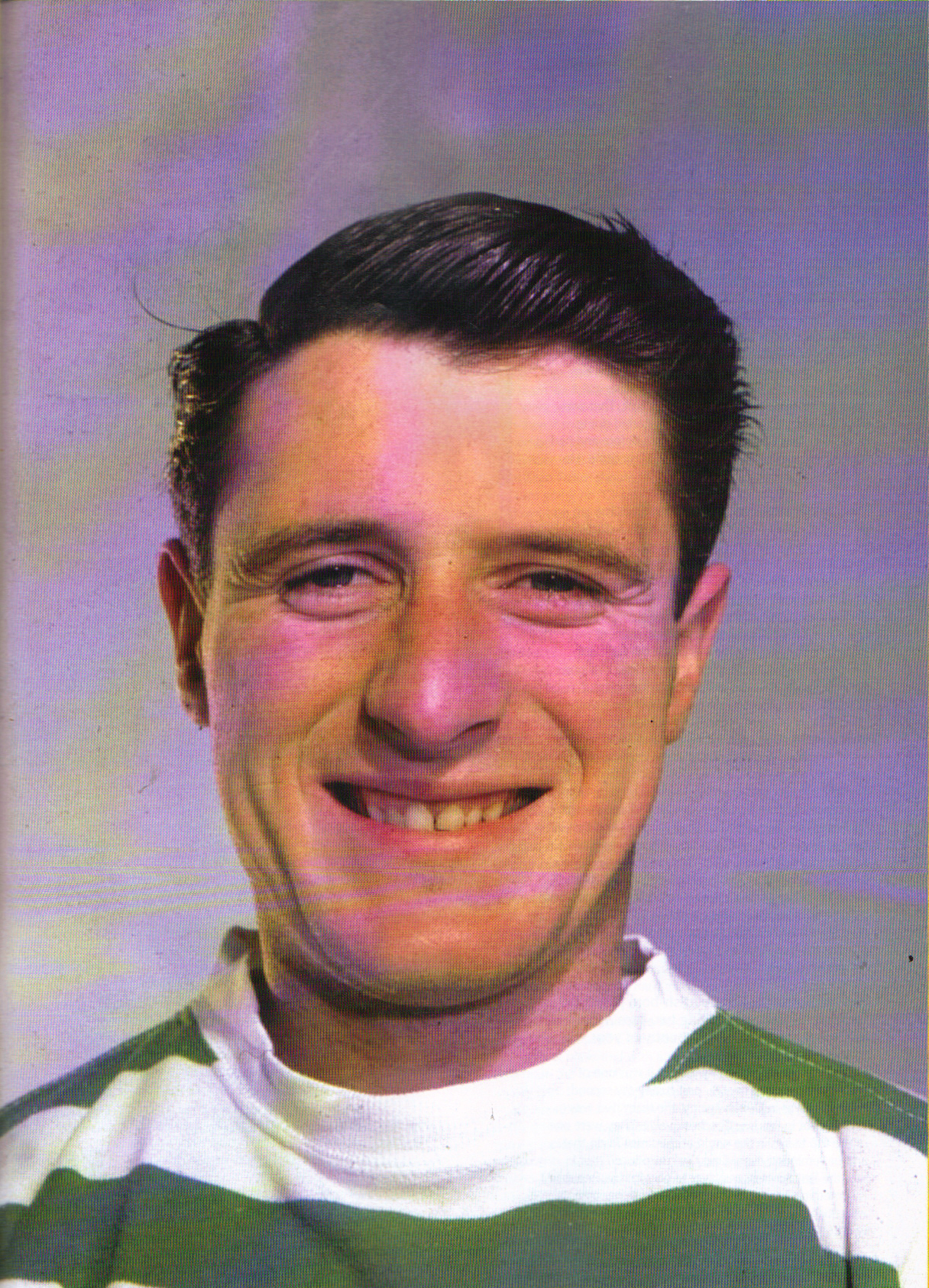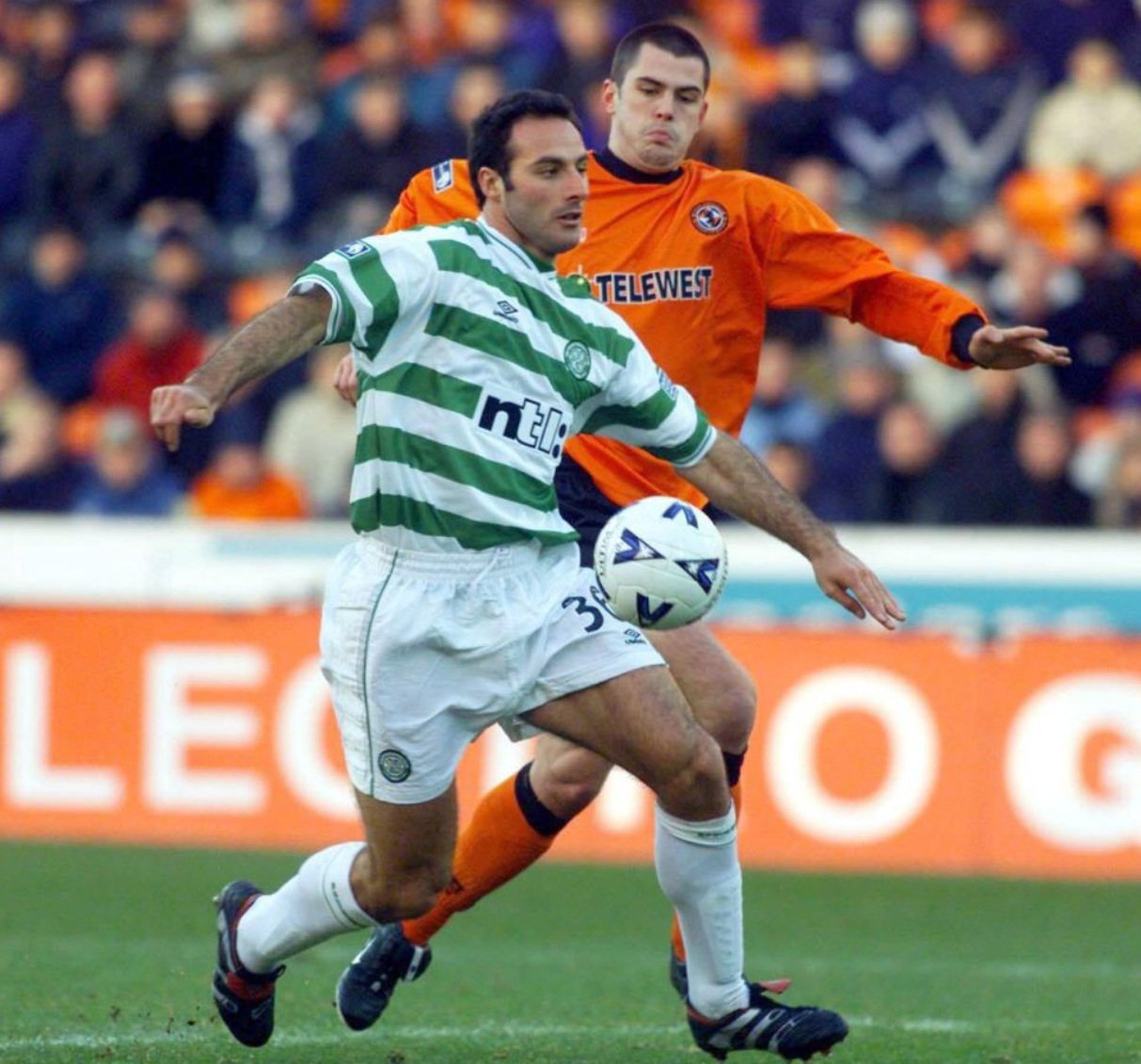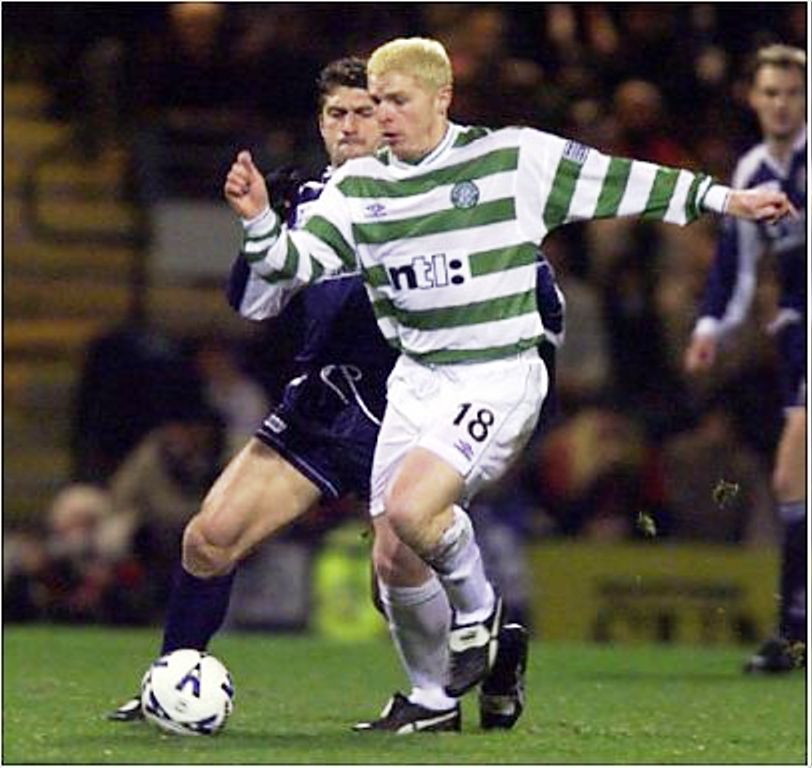In a new weekly series on the site we will focus on a number of Celtic players whose contributions often went un-noticed. First up is Charlie Gallacher…
In the late 1950’s, Celtic chairman, Robert Kelly, started a youth policy of signing the best young footballers that his scouts could find. During this period, Billy McNeill, John Clark, John Hughes and Pat Crerand were all fine examples of youngsters who were given early first team opportunities at Celtic Park. One of the best of that young crop was Charlie Gallagher.
Celtic were a disorganised club in the early 1960’s and this was reflected with a number of disappointing trophy-less seasons. In his early Celtic career, Charlie was played in a number of different positions and found it hard to settle in one role. This was a difficult period for him and he also suffered the misery of losing several highly important games. He was in the Celtic team which lost the Scottish Cup final replay to Dunfermline in 1961 and the side which blew a three goal first leg lead against MTK Budapest in the semi final of the European Cup Winners Cup in 1964.
Kelly changed policy in 1965 when he brought Jock Stein back as manager. Success was immediate when the Scottish Cup was won in March 1965 against Dunfermline, the first trophy the Celts had lifted since 1957. Charlie played an influential part in that victory when his thumping long range shot against the crossbar helped produce Celtic’s first goal for Bertie Auld. With only minutes remaining and the game finely poised at 2-2, Charlie helped make Celtic history when he flighted over a glorious corner for Billy McNeill to head home a dramatic winning goal. The glory days had now begun.
Charlie was again at inside right when Celtic defeated Rangers 2-1 in the 1965 League Cup final and in May 1966 he won his first league medal when Celtic clinched the title at Fir Park on a day when Celtic fans had packed Motherwell’s ground and dangerously perched themselves on top of the roof of the enclosure.
Competition for first team places increased when Willie Wallace arrived at Parkhead from Hearts in late 1966. Tactically, Stein had now changed Celtic’s system to a modern 4-2-4 formation, with Bobby Murdoch and Bertie Auld converted to orthodox midfield roles, and Charlie lost his place for a spell. However, he played another vital part in Celtic history in March 1967. With Celtic and Vojvodina locked at 1-1 on aggregate in the European Cup quarter final at Celtic Park, a third game in Rotterdam looked on the cards. With only seconds remaining, the Gallagher-McNeill combination worked again when another perfect corner from Charlie was headed home by the Celtic captain. Parkhead had never witnessed such a dramatic ending to a game and the celebrations were long and loud.
Charlie had the huge disappointment of missing out on Celtic’s European Cup triumph in Lisbon in May 1967. Together with Joe McBride, John Hughes and Willie O’Neill, he had played a major part in getting Celtic to that final and those players deserve to be remembered as ‘Lions’ also.
By 1968 Charlie was on the periphery at Parkhead. In February Bertie Auld was injured and Charlie took his place on the left side of Celtic’s midfield for the rest of the season. At that time Rangers were strong favourites but, with Charlie in inspirational form, Celtic remarkably won their last fourteen league games in succession to win the title in their last game at East End Park on 30 April.
That title win required a huge effort from the Celtic players and Charlie rightly received huge credit for his contribution. His cultured play and controlled passing in midfield, in tandem with Bobby Murdoch, was a huge factor in Celtic making it three titles in a row under Jock Stein.
By late 1968 Charlie found himself out of favour with Stein. Proposed moves to English clubs did not transpire and the relationship between player and manager sadly deteriorated. One plus point was that Charlie was able to assist a new crop of players in the Celtic reserve side, the hugely successful ‘Quality Street Gang’, which included a vast array of talent, all of whom have recorded their gratitude to seasoned professionals like Charlie and Joe McBride for passing on their experience and expertise.
In 1970 Charlie moved to Dumbarton where he gave great service to the ‘Sons’ including helping them achieve promotion to Scotland’s top tier in 1972.
Charlie Gallagher was a Celtic player for twelve years and was involved in many of Celtic’s greatest successes. He was a player who did not have a high profile during his career but his notable contribution will continue to be remembered when future Celtic histories are written.




